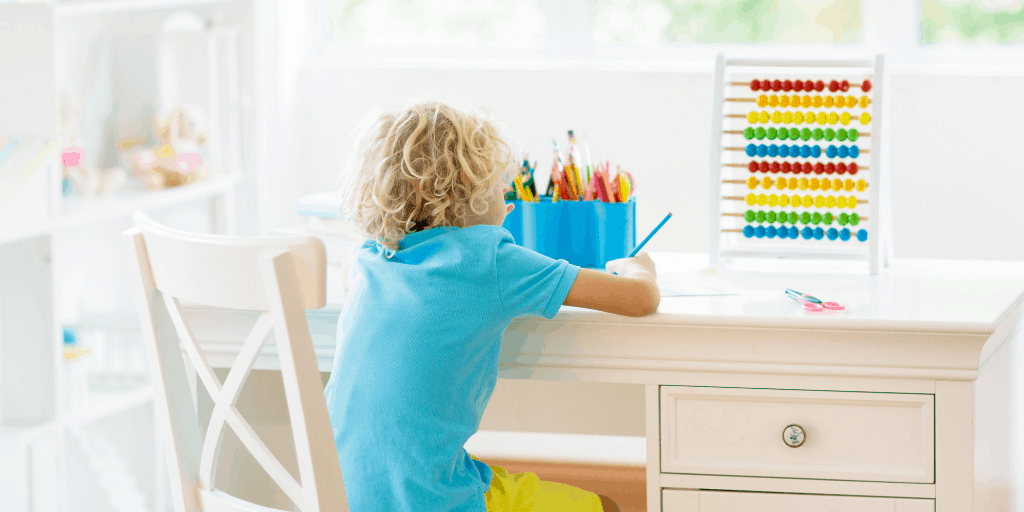As parents, we all want the best for our children. We strive to provide them with a nurturing environment that supports their growth and development. Establishing a routine is one of the most effective ways to achieve this. For primary school children, a consistent daily routine can be a game-changer, impacting everything from their academic performance to their emotional well-being. Let’s explore why routines are so important for young children and how you can create one that works for your family.
Why Routine Matters
1. Provides a Sense of Security and Stability
Routine in early years gives children a sense of stability. Knowing what to expect throughout the day helps them feel safe and secure. When children can anticipate the sequence of events, they are less likely to experience anxiety and stress over what to do next. It also uses up less mental energy trying to decide between the many different things they can do. This sense of security is crucial for their emotional and psychological development.
2. Promotes Healthy Habits
Routine helps instil healthy habits from a young age. When children follow a consistent schedule, they are more likely to develop good habits such as brushing their teeth, washing their hands, and eating nutritious meals. As these habits become second-nature, children form the foundation for a healthy lifestyle as they grow older.
3. Enhances Academic Performance
A structured routine supports academic success. When children know they have dedicated time for homework and study, they can get into the right mindset beforehand and approach their schoolwork with a focused attitude. Consistent bedtime routines ensure they get enough sleep, which is essential for cognitive function and concentration.
4. Builds Time Management Skills
Learning to manage time is a valuable skill that benefits children throughout their lives. By adhering to a routine, children understand the importance of allocating time for different activities, whether it’s schoolwork, play, or chores. This helps them become more organized and responsible independently.
The Benefits of Routine for Young Children
From a young age, children start to gain an awareness and understanding of everyday events, processes, and procedures. Establishing a routine helps them understand what is expected. This is key to supporting good behavior and building healthy habits.
1. Emotional Stability and Reduced Anxiety
Routine offers young children a sense of security and emotional stability. Predictable patterns of daily activities provide reassurance and reduce anxiety. By knowing what to expect next, children develop a sense of control and confidence, strengthening their emotional well-being.
2. Self-Discipline and Independence
Regular routines encourage self-discipline as children learn to follow a structured sequence of activities. They develop essential life skills, such as self-care, hygiene, and organizing their belongings. As children gain independence within routines, their confidence and self-esteem flourish.
3. Cognitive and Social Skill Development
Consistent routines support the development of cognitive and social skills. Through repetitive actions, children solidify their understanding of time concepts, and sequencing. Routines also offer structured and regular opportunities for interaction with peers, caregivers, and educators, promoting social learning and communication skills.
4. Physical Health and Body Clocks
Routines support children’s ‘body clocks’, contributing to regular bowel movements, well-balanced nutrition and mealtimes, naps, and sleep times, healthy play, and the ability to recognize time to wind down. The repetition of key tasks also provides opportunities to help develop fine motor skills, contributing to physical development
Implementing Routine in Early Years Settings
1. Promoting Consistency and Structure
-
- Create a daily schedule that provides a consistent framework for everyday activities such as mealtimes, nap times, playtime, outdoor time, and learning activities.
-
- Display visual cues, such as pictures or symbols, in a common space to help children understand the sequence of events and transitions This is also something children can refer back to in the beginning as they learn their routine.
-
- Maintain consistent routines for essential activities like handwashing, toileting, and diaper changes.
-
- Provide clear and simple instructions during transitions to help children understand what is happening next.
2. Incorporating Transitions Effectively
-
- Transition periods are used for children to relax before they begin another activity.
-
- Use transition activities, such as singing a song or reading a book, to help children move smoothly between activities.
-
- Plan transition times to allow for individual needs, respecting different learning speeds and temperaments.
Making Routine Fun
1. Incorporate Play and Creativity
Routine doesn’t have to be boring! Incorporate playtime and creative activities into your child’s schedule. This keeps them engaged and makes the routine more enjoyable.
2. Theme Days
Introduce theme days to add excitement to the routine. For example, have a “Science Experiment Saturday” or a “Crafty Sunday” where you dedicate time to fun, themed activities. Plan these in advance within your own routine as a parent!
3. Family Involvement
Make routine a family affair. Involve siblings and other family members in activities like family dinners, game nights, and story time. This creates bonding opportunities and makes the routine more meaningful.
Sample Daily Routine for Primary School Children
Here’s a sample daily routine that you can adapt to suit your family’s needs:
Morning:
-
- 7:00 AM – Wake up, brush teeth and get dressed
-
- 7:30 AM – Breakfast
-
- 8:00 AM – Leave for school
Afternoon:
-
- 3:30 PM – Return from school and snack time
-
- 4:00 PM – Homework and study
-
- 5:00 PM – Study break
-
- 5:30 PM – Study
Evening:
-
- 6:30 PM – Dinner
-
- 7:15 PM – Family time (reading, games, etc.)
-
- 7:45 PM – Bath time
-
- 8:30 PM – Bedtime routine (story time, lights out by 9:00 PM)
How can Educate Excellence help?
Here at Educate Excellence we encourage parents to establish a structured routine at home. If you need help with this, please contact our PLOs who will be happy to provide advice where they can.
Establishing a routine for primary school children is one of the best gifts you can give them. It provides a sense of security, promotes healthy habits, enhances academic performance, and builds essential life skills such as independence By creating a consistent yet flexible routine and making it fun, you can support your child’s growth and development in a holistic way. Remember, the goal is to create a balanced routine that works for your family and helps your child thrive.
Embrace the power of routine and watch your child flourish!

